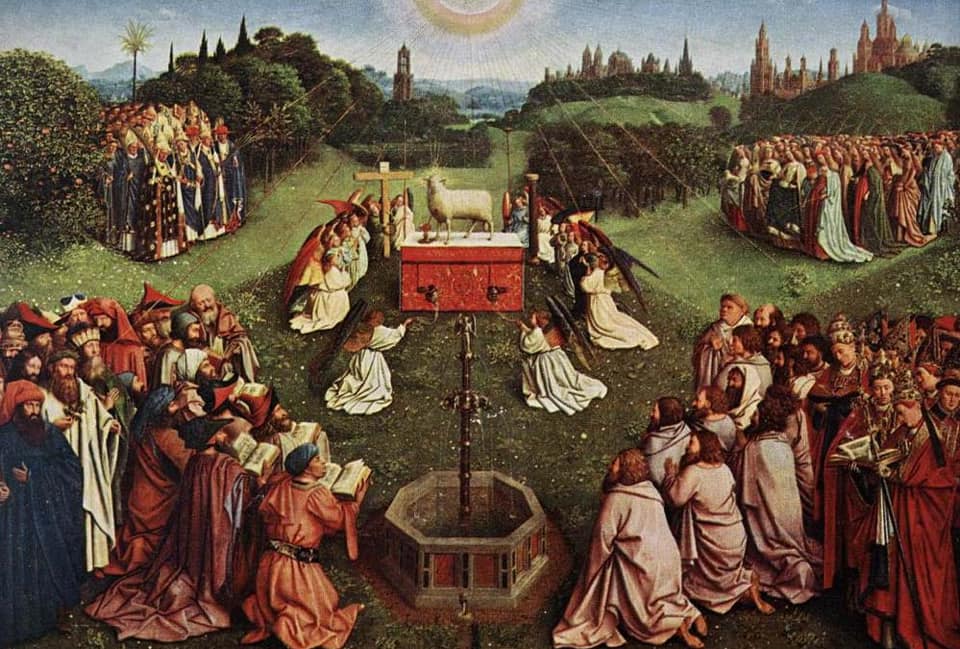 Gospel of 20 August
Gospel of 20 August
Thursday of the Twentieth Week in Ordinary Time
Matthew 22:1-14
Invite everyone you can to the wedding
Jesus began to speak to the chief priests and elders of the people in parables: ‘The kingdom of heaven may be compared to a king who gave a feast for his son’s wedding. He sent his servants to call those who had been invited, but they would not come. Next he sent some more servants. “Tell those who have been invited” he said “that I have my banquet all prepared, my oxen and fattened cattle have been slaughtered, everything is ready. Come to the wedding.” But they were not interested: one went off to his farm, another to his business, and the rest seized his servants, maltreated them and killed them. The king was furious. He despatched his troops, destroyed those murderers and burnt their town. Then he said to his servants, “The wedding is ready; but as those who were invited proved to be unworthy, go to the crossroads in the town and invite everyone you can find to the wedding.” So these servants went out on to the roads and collected together everyone they could find, bad and good alike; and the wedding hall was filled with guests. When the king came in to look at the guests he noticed one man who was not wearing a wedding garment, and said to him, “How did you get in here, my friend, without a wedding garment?” And the man was silent. Then the king said to the attendants, “Bind him hand and foot and throw him out into the dark, where there will be weeping and grinding of teeth.” For many are called, but few are chosen.’
Reflexion
At every Mass, during the consecration, when the priest raises the chalice slightly above the altar, he says these words, “poured out for you and for many, for the forgiveness of sins.” Does that mean that the Church is saying that Christ died for some (“many”) but not for all?
This does not mean that Christ did not die for the sake of all humanity, for that is indisputable from Scripture. Rather, it upholds the reality that each individual must also accept and abide in the grace won by Christ, in order to attain eternal life. Salvation is not automatic. Although Christ's redemptive suffering makes salvation available to all, it does not follow that all men are saved. Our salvation is contingent upon us making the correct respond to God’s invitation to the heavenly banquet.
This is what we see in today’s parable of the Wedding Banquet. It is the Feast of Judgment. The king, who is God, sends out his servants (the prophets) to announce his invitation, “Come to the wedding!” But not all respond positively. When the original group on the guest list rejected the invitation, the servants were asked to go out into the streets to collect "the good and the bad.” This is an invitation of grace - undeserved, unmerited favour and kindness! But this invitation also contains a warning for those who approach the wedding feast unworthily. You need to be appropriately “dressed.”
The parable therefore points to two forms of rejecting God’s gift of salvation. The first form is indifference: those invited do not appreciate or care for the invitation – they have better things to do - no time for Church, for prayer, or for religion. The second form of rejection is more subtle. Though they may come to church, pray or do the basic Catholic things, they take their faith lightly. They believe that if they were to do the bare minimum, eg attend Mass and pray, it would be enough to get them to heaven. They see no need to live a life of Grace, to go frequently for confession, to find ways and means of nurturing their own faith life. Just doing the bare minimum would not be enough. Familiarity breeds contempt.
It is true that God bestows things on us without measure. It is true that He wishes the salvation of all. But, it is not true that we can presume that such salvation is guaranteed without any effort on our part, without any true conversion of the heart, or without any transformation, conversion and sacrifice that comes from the core of our being. God bestows the grace of salvation and offers it to all of us, but now we must be willing to give ourselves entirely to Him, without calculating, without stinginess.
With much grace comes greater responsibility.
